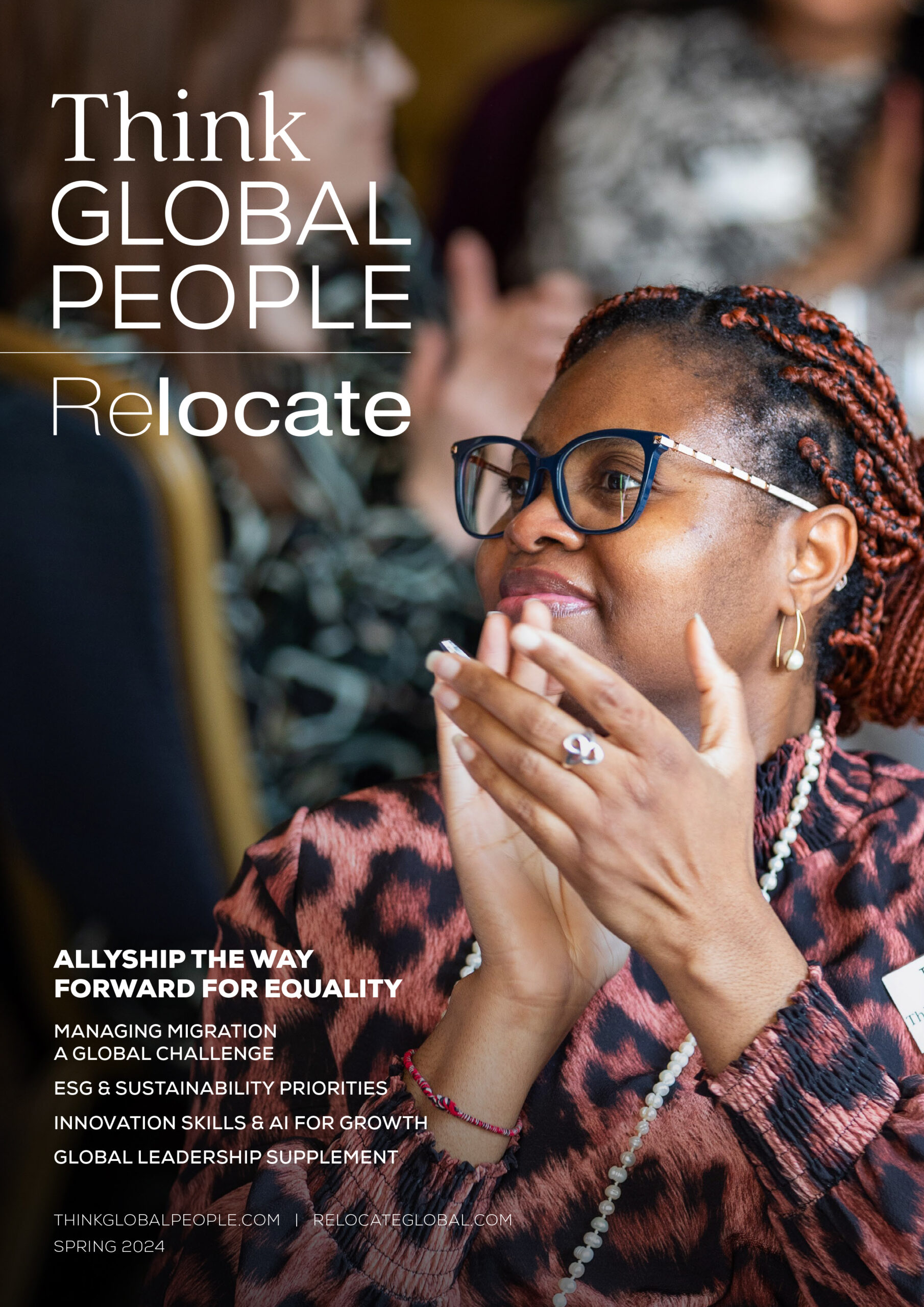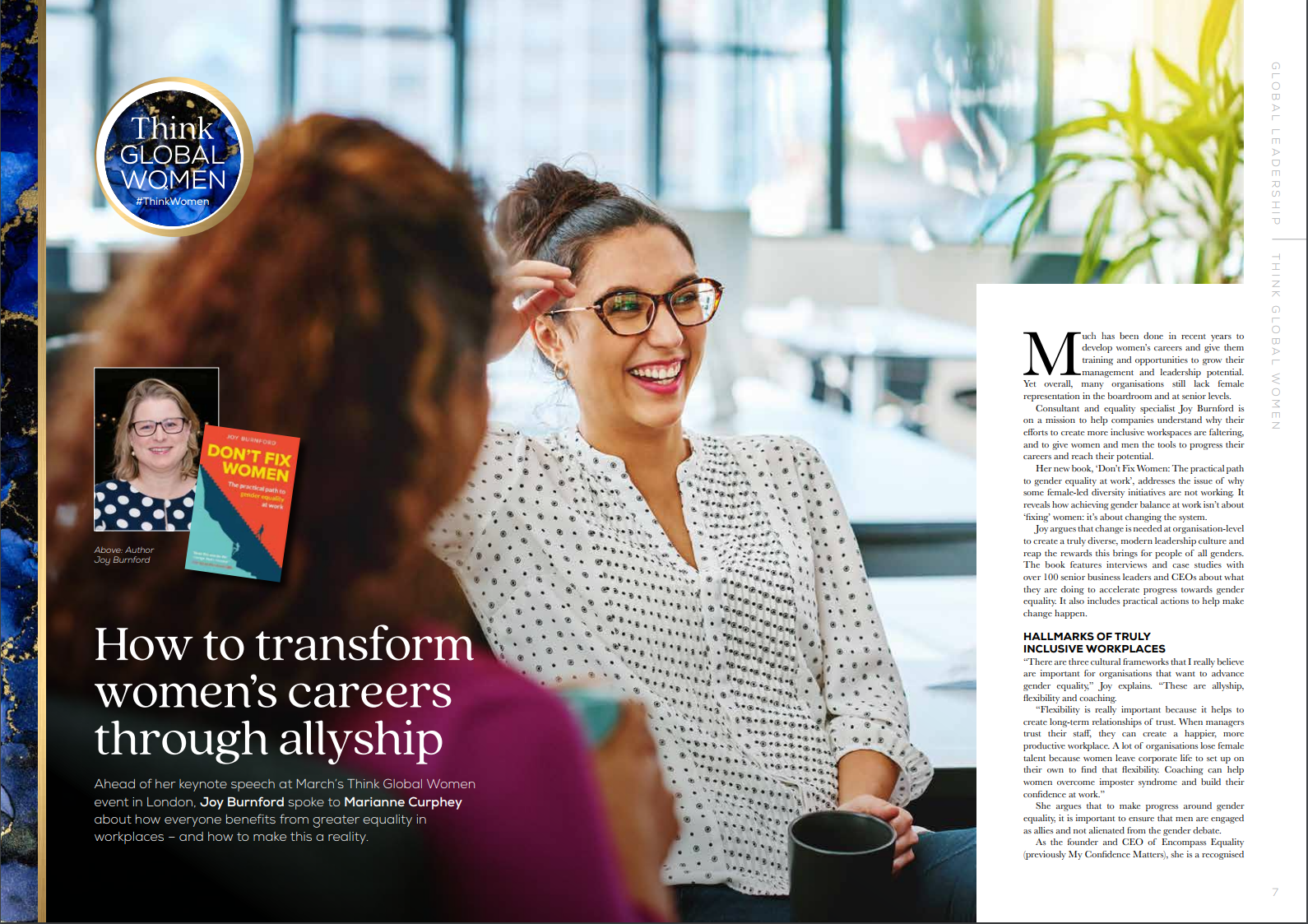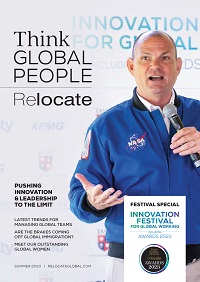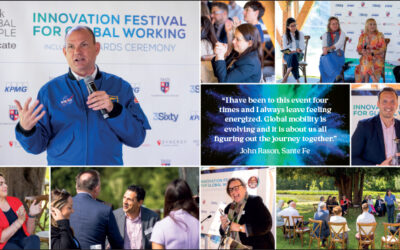Trends in Global Mobility– challenges and opportunities for leaders and managers
How can employers and organisations reward staff, help them nurture their career and answer their demands for more flexible working while navigating the complex world of international tax, social security and workplace regulations?
That is the question addressed by the new KPMG report Great Expectations: How expectations across pay, mobility, borders, and life are changing.
While technology has enabled staff to work remotely, employers also need to think about the implications of expanding their work-from-anywhere programmes, the report says. There are challenges on a number of levels: for managers who are trying to bring together disparate team members, for HR teams who are trying to accommodate new and greater demands for flexible workplace practices, and for business and compliance teams who need to ensure that their staff are working within the laws of the country where they are based.
Three key challenges emerge from the analysis done by KPMG for the report:
- how to manage benefit packages and pension plans for mobile workers
- what skill set leaders need to develop in order to thrive in the new workplace
- how to satisfy employees’ career goals while establishing boundaries in order to protect the company and its staff in a variety of tax and legal jurisdiction
Designing reward packages for increasing mobile and diverse workforces
Having a globally mobile career carries huge reward and benefits for assignees, giving them international experience and the opportunity to live and work in different cultures.
Whether living as a global nomad, moving from one assignment to another, or as an assignee returning to a home base after months or years, there are, however, complications associated with this lifestyle in terms of saving for pensions benefits.
For organisations, the most important connection is ultimately with their people,” he says. Companies need to examine whether the benefits and incentives that they offer connect closely enough with their public, purpose-driven statements.”
Marc Burrows, Head of Global Mobility Services, KPMG International
Potentially, more flexible work arrangements can jeopardize long-term mobility and benefits, especially pensions and social security, says Marc Burrows, Head of Global Mobility Services, KPMG International. It can have implications for the employer’s duty of care as well as for the employee’s own long-term financial security. This is because tax breaks and savings plans are often offered to individuals who are resident or domiciled in a specific jurisdiction, and if employees are working remotely or for short periods, this can become complicated.
This article is taken from the latest issue of Think Global People magazine.
Click on the cover to access the digital edition.
Would an international pension plan work for globally mobile employees?
How an organisation delivers its duty of care to an employee is being reconsidered and reshaped based on changes in the workforce, Marc Burrows says.
“Someone who is in a career that spans multiple jurisdictions does not lend itself to a continued contribution to a single country pension scheme,” he explains. “There is a recognition that moving around the globe can impact an individual’s ability to contribute to a pension scheme and to accumulate long term retirement benefits.”
One alternative might be to offer a lump sum to an employee in lieu of being a member of the company pension scheme. This could help overcome the difficulties faced by an employee who starts work in one country but wishes to retire elsewhere.
Another option to consider is an international pension scheme, although that would mean the employer has more responsibility to ensure that funds are put towards long term retirement savings. As more assignees move around the globe rather than returning to a home hub after each assignment, this could also be part of a benefits package to incentivise new talent to join the company and to persuade existing employees to stay.
The report also looks at the enabling and freeing elements of technology-based work, the huge benefits from come from our new ability to connect virtually and the drive to accommodate personal requirements around a work-life balance.
“The practical limitations of doing a job from anywhere have been taken away,” says Marc Burrows. Once you have removed the practical barriers, the opportunity arises to engage with a much wider talent pool, he says. This also brings difficulties for an organisation which has to try and accommodate hundreds or thousands of individual work requests, each of which is different and unique.
Technology plays a role in helping to resolve those challenges and barriers,” he says. “In the past, companies have tended to define a scenario and create a process and set of policies that can be applied universally and consistently. What we’re finding in this modern workforce scenario is that demands are more complex, and no two requests for flexible or remote working are the same.”
Marc Burrows, Head of Global Mobility Services, KPMG International
“There are a lot of complexities involved,” he says. “It might be a problem around regulation – for example there are restrictions on the types of activities that are allowed to be done outside a place where a company has their banking licence. Or it might involve immigration limitations in terms of what activities an individual is permitted to do depending on their visa or work permit. Then there are issues in terms of company registration, reporting of taxation and profits, personal tax and payroll, and society security regulations.”
This is where communication is important so that employees understand why not every request can be fully accommodated. Technology can help to reduce the burden of administration. While companies are being placed under an extraordinary amount of pressure to deal with a variety of different working requests, employees may find it difficult to understand why it is taking so long for their individual requests to be considered and signed off.
“Technology plays a role in helping to resolve those challenges and barriers,” he says. “In the past, companies have tended to define a scenario and create a process and set of policies that can be applied universally and consistently. What we’re finding in this modern workforce scenario is that demands are more complex, and no two requests for flexible or remote working are the same.
“That makes it very difficult to set up that traditional, single process/single policy approach and keep it ticking over. The only way you can potentially meet the demands around flexibility for your employee base is if you adopt technology to make the process more manageable.”
Using technology to process requests can also make the process more equitable, he suggests, and ensure that within a company’s mobility practices people are not excluded and are encouraged not to exclude themselves from the opportunity of an assignment which might enhance their career.
Having said that visa and working regulations have become more complex, there is also a move among some countries and jurisdictions to make themselves more attractive to talent. Often these initiatives are government-led and are twofold in their objectives – to attract talent but ensure that taxation and immigration rules are not exploited.
“There are indications that governments are looking at what they can do in order to address the changing nature and shape of the workforce,” says Marc Burrows. “One is: how do we how do we make ourselves an attractive location for talent? On the other hand, how do we as a country, ensure that we are not being taken advantage of? It is both a talent enticement and also a protection against abuse that is going into those policy discussions.”
He says there has been a limited amount of movement within countries in terms of legislation, and those governments that have introduced regulation quickly have tended to do so in order to entice talent. However, the conversation is now moving towards ensuring that the right protections are in place when supporting and encouraging remote working.
How should leaders respond to this new era?
As new generations enter the workforce, their expectation of a work-life balance, inclusive workspace and lifestyle benefits do not match the incentive packages that have been offered by organisations in the past.
Marc Burrows says younger people are quick to notice if there is a disconnect between lofty corporate strategy statements and the reality of the workplace.
“For organisations, the most important connection is ultimately with their people,” he says. “Companies need to examine whether the benefits and incentives that they offer connect closely enough with their public, purpose-driven statements. There can be a lot of very modern, committed statements but a very old-fashioned and disconnected reward package at the end of it.”
Issues such as the office dress code, which he says “should not be created within a non-diverse group of people in a windowless room” need to be addressed with reference to the reality of the business and its people.
Marc Burrows says smart companies will start to think about what is important to the business in terms of the standards that are set, and the environment created so all employees feel comfortable and can do their best.
“Technology has enabled rank to be broken down and people now feel that they have access to leaders, which has enabled new and different types of interactions and communication,” he says. “It has given leaders better access to a broader group of people both geographically and in terms of the different communities where talent might be found.”
Younger workers are not swayed by grand statements but instead want to see real evidence of equality and opportunity being deployed in practice.
“They key is to get better at enabling diverse stakeholder management within organisations,” he says, “It is about how leaders incorporate authenticity and responsiveness into their leadership and their vision for the company.”
KPMG were sponsors of the Innovation Festival for Global Working and the Think Global People Awards 2023 which took places on 8 June,

Join Think Global People
Our exclusive membership network for decision-makers, aspiring leaders, experts and thought leaders focused on global business and working.






